If your profession requires you to interview job applicants regularly, you’ll realize that one of the perks of having such a career is getting to meet people from different walks of life. As multiple applicants compete for the same position, you’ll notice how each is unique despite possessing similar skill sets. In just a few interview sessions, you get to see a world unfold in front of you as you get to know their beliefs, personalities, and priorities.
As an interviewer, it is your job to pick out the person who best fits the job position and the team’s culture. However, there is a caveat: there are job applicants that hide their skills and capabilities under the facade of the Halo and Horn effect. The former urges you to treat them positively while the latter makes you deal with them negatively. To see what is behind the smoke screen, you must become familiar with the types of job applicants that you will encounter in the professional world.
The Halo Effect
Applicants that possess the Halo Effect usually have sublime qualities in a person, such as charisma and physical attractiveness and they know it. With their polished looks and charming presence, they can influence you to have a positive impression of them even in the first few minutes of an interview.
The halo effect is a psychological phenomenon in which our overall impression of a person influences how we feel and think about their character. Physical appearance is often part of this cognitive bias. But it also includes gender, race, ethnicity, accent, interests, values, behaviors, or attitudes.
Though this is not a negative factor for a job applicant to have, the halo effect can be problematic if it results in making incorrect decisions, missing out on the ideal applicants, or even having serious issues. An example of this is the result of the interview being impacted because the interviewer has an overly favorable opinion of a candidate. The questioner is oblivious to feedback from stakeholders. Or if the examiner overlooks poor answers and finds excuses or reasons for skills that their preferred candidate is lacking.
To avoid the halo effect, identifying one’s own unconscious biases is the best defense. Remember: when you start to have a favorable impression of a particular applicant, consider these additional factors to clear out your decision-making. Be inclusive, conduct several interviews, follow a hiring checklist, and bring a third-party interviewer.
The Horn Effect
This category of applicants is usually the ones you find boring, unlikeable, or even worse, repulsive. They possess qualities that are generally taboo or unappealing to society. For example, have you encountered an interviewee who had an unpleasant body odor yet answered all of your questions perfectly? Despite the successful interview, your first instinct is to drop them on the list because you assume the person is lazy. Thus, this applicant produces the exact opposite of the halo effect towards the interviewer: the horn effect.
The horn effect is a cognitive process whereby we quickly attribute unfavorable attitudes or behaviors to someone based on one element of their appearance or personality. It includes gender, race, ethnicity, accent, tastes, ideals, attitudes, or behaviors.
The horn effect can be problematic in interviews because it can lead the interviewer to overemphasize even one single negatively interpreted quality, remark, or action towards applicants. Another example: candidate evaluations may be harsher than usual because the questioner learns that the applicant is a minority.
Understand that it is common for interviewers to have an initial negative impression of an applicant based on their appearance, speech, or even body language. But you must never score applicants based on the first impression. However, if the interviewee’s behavior and actions harm you, then feel free to discontinue the interview.
Make sure to have awareness of your cognitive bias. Then, you can use additional processes such as having scoring criteria for interviews, bringing out a third-party interviewer, and conducting several sessions with the respondent.
To conduct successful interviews without clouded judgment, familiarize yourself with the halo and the horn effect and understand how to regularly make the unbiased and clear judgment that takes the job applicants’ entire interview, their skill sets, and their expertise into consideration.
If you want to learn more about applicants with the halo and horn effect, follow @SourcefitPH on social media and visit our website.
















